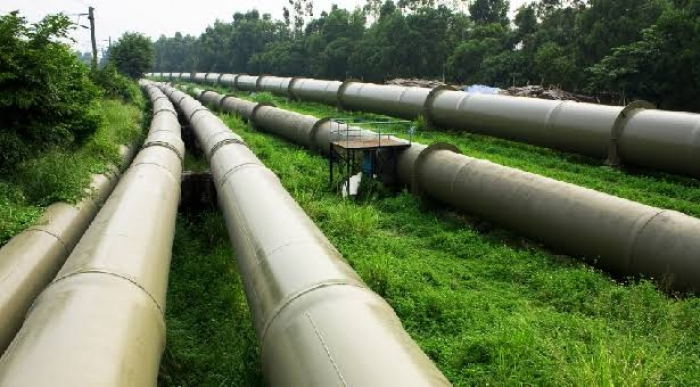The recent revelation by Chief of Naval Staff Emmanuel Ikechukwu Ogalla that Nigeria's crude oil output has increased to between 1.6 and 1.7 million barrels per day is a welcome development. This improvement, attributed to enhanced security measures, underscores the critical role of effective law enforcement in safeguarding the nation's most valuable resource. However, it also serves as a stark reminder of the persistent challenge of crude oil theft that has plagued Nigeria for far too long.
The fact that increased surveillance and enforcement can yield such significant results – a rise from 1.2 million barrels per day in February to the current levels – is both encouraging and concerning. It demonstrates that with proper commitment and resources, the government can indeed combat this scourge. Yet, it also raises questions about why such measures were not implemented sooner and more comprehensively.
The Navy's deployment of 12 vessels to protect oil production and the arrest of over 16 vessels involved in illegal activities are commendable steps. However, these actions should be the norm rather than the exception. The blockade of channels for selling illegally refined petroleum products is another positive move, but it must be sustained and expanded.
To truly address this issue, we propose a more aggressive and accountable approach. Navy Commanders and allied security officers should be given specific targets for preventing oil theft, with their commissions tied to these performance metrics. This would create a direct incentive for these officers to maintain vigilance and integrity in their duties.
The stakes could not be higher. The value of the Naira, the supply of crude oil for local refineries, the country's finances, and numerous other crucial economic parameters are directly tied to our ability to stem this theft. The potential for Nigeria to produce up to 6 million barrels of oil per day, as suggested by Oil Minister Heineken Lokpobiri, remains a distant dream if the government cannot secure current production.
Moreover, the exodus of major oil companies like Shell underscores the urgency of creating a secure and stable environment for oil production. The country cannot afford to lose more investors due to the persistent threat of theft and insecurity.
The government must prioritize this issue, allocating more resources and political will to combat oil theft. This includes not only enhancing security measures but also addressing the root causes of the problem, such as corruption within the security agencies themselves and the lack of economic opportunities in oil-producing regions.
In conclusion, while the recent increase in oil production is a positive sign, it should serve as a catalyst for more comprehensive and sustained action. The future of Nigeria's economy depends on government’s ability to protect and maximize the benefits of the country’s oil resources. It's time for a zero-tolerance approach to oil theft, backed by accountability, incentives, and unwavering commitment from all levels of government and security forces. Only then can we hope to realize the full potential of our nation's most valuable asset.


































































